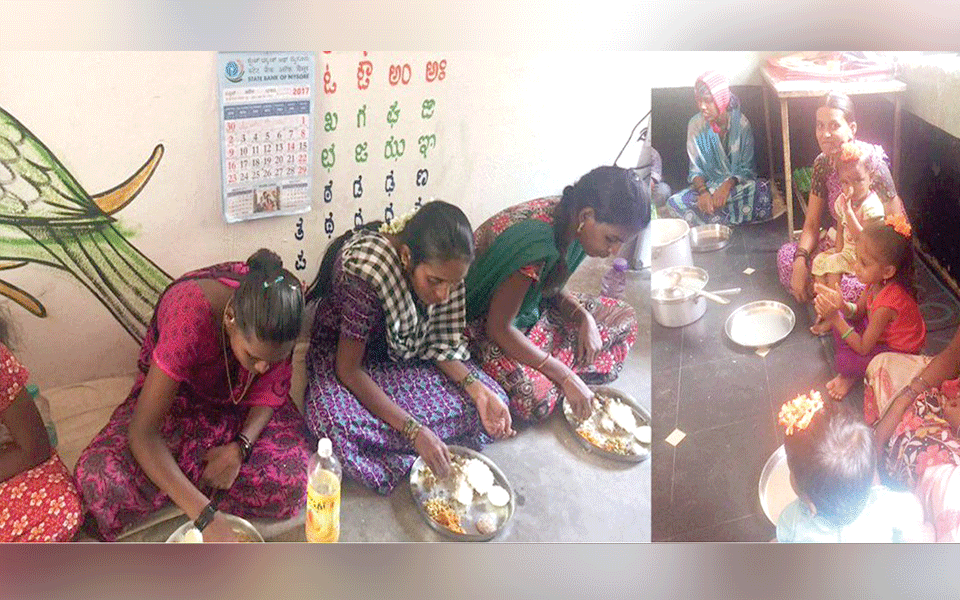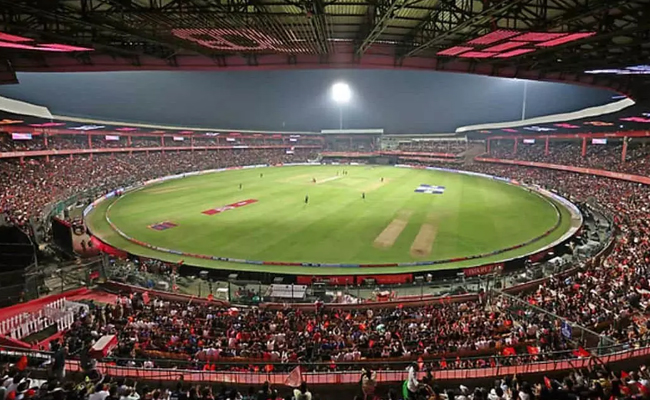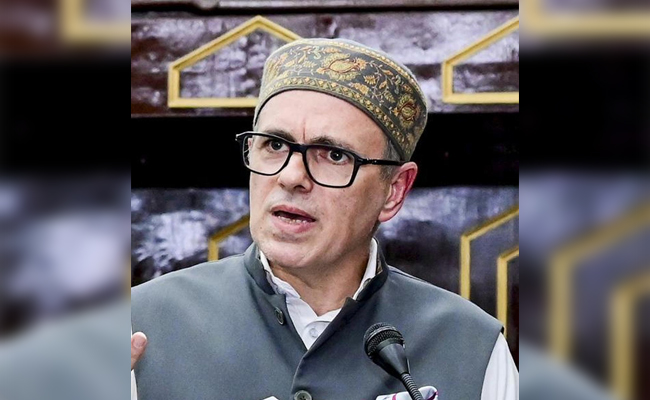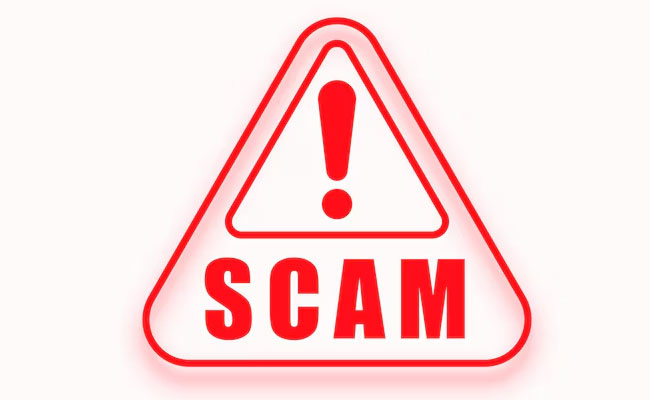- Schemes registers 26 % progress in April, 24 % in May and June
- Puerperal and pregnant women stay away from Anganwadis
Mangaluru, July 31: The much ambitious programme ‘Matru Poorna Scheme’ introduced by the previous Siddaramaiah government 10 months back to provide nutritious food to puerperal and pregnant women witnessed a setback in the Dakshina Kannada district.
The officials also apprised Woman and Child Welfare department Minister Dr Jayamala who visited the district recently about this situation. Following this, the department is mulling alternative arrangement. The scheme has recorded just 26 per cent progress in April and 24 per cent in May and June. The main reason for this setback is because the puerperal and pregnant women have kept themselves away from Anganwadi centres, self respect issue and others.
Before introducing the scheme, the family members of puerperal and pregnant women used to go to Anganwadi centres and bring nutritious food by signing in the registers. As there was an allegation that the food items were being misused, the government had issued an order to have the food in Anganwadi centres. But the government authorities have failed to provide required facilities. In spite of various problems, Anganwadi workers were cooking food due to the fear of losing their jobs. But the beneficiaries did not respond to the scheme positively due to which, the scheme has witnessed a setback.
The department has the target of providing food to 12,762 pregnant women and 12,126 puerperal women in the district. In April, only 1,814 (14%) pregnant women and 1,495 (12%) puerperal women turned out to the anganwadi centres and had food. But in May, the number of pregnant women reduced to 1,561 (12%) and puerperal women to 1,309 (11%) and in June, 1,511 (12%) pregnant women and 1,313 (11%) puerperal women got the benefit.
When the scheme was launched on October 2, 2017, total 29,468 beneficiaries including 14,294 pregnant women were identified in the district and it was implemented in 2,104 anganwadis across the district. The department had strictly directed the anganwadi workers and assistants to have food with the beneficiaries. In 2018, the target was fixed for 29,076 beneficiaries including 12,762 pregnant women, 12,126 puerperal women, 2,104 anganwadi workers and 2,084 anganwadi assistants in the district. In order to implement the scheme effectively, the government had announced Rs 500 and Rs 250 additional honorarium for Anganwadi workers and assistants respectively. Interestingly around 98 per cent anganwadi workers and assistants responded to this scheme. But as the beneficiaries have not shown the interest, the programme has received poor response.
Food being provided under scheme
- Lunch will have rice, sambar, saagu, boiled egg, milk and chikki prepared out of groundnut and jaggery. Beneficiaries will get food 25 days a month and 300 days a year. For vegetarians, sprouts will be provided. This would ensure minimum 40-45% nutritions including protein, calcium and others.
- Gruel and chutney will be provided on Tuesday and Thursday. Remaining days will have rice and sambar.
- Along with food, iron tablets and iodine-rich salt will also be provided to pregnant women.
“Minister Dr Jayamala was apprised of the problem being faced by the scheme in the district. Discussions were being held to make alternative arrangement in the district”.
- Sundara Poojary, Deputy Director, Woman and Child Welfare Department
“This scheme is not suitable for this environment. Because the self respect of pregnant and puerperal women come on their way to go to Anganwadi centres to have food whether their houses are near or far away from the centres. Moreover, they find it difficult to reach the centres on time. It is better to change the scheme at least for the Dakshina Kannada district”.
- Hasina Mangaluru, Home Maker
Let the Truth be known. If you read VB and like VB, please be a VB Supporter and Help us deliver the Truth to one and all.
Bengaluru (PTI): Defending champions Royal Challengers Bengaluru will play five of their home matches at the M Chinnaswamy Stadium here and the remaining two fixtures at Raipur's Shaheed Veer Narayan Singh International Stadium in the upcoming IPL, the franchise said on Tuesday.
The announcement ended doubts about whether the IPL 2025 winners would be able to play at their home ground, the M. Chinnaswamy Stadium, following the stampede that killed 11 fans after RCB's maiden title win.
Since that tragic indecent, the venue has not hosted any major domestic matches including the Ranji Trophy, Vijay Hazare Trophy or even the Maharaja Trophy KSCA T20.
"This significant development comes after months of hard work and close coordination across all concerned authorities with a common goal of bringing the games back to home ground for the fans," RCB said in a release.
"RCB extends its sincere gratitude to the Government of Karnataka, the Karnataka State Cricket Association and the Karnataka Police for their unwavering guidance, cooperation and support in facilitating the hosting of matches in Bengaluru."
"The collective efforts to ramp up infrastructure and safety measures in time for the IPL season have ensured that the defending champions will play the majority of their home games in their home ground," the franchise added.
The franchise said that the two "home matches" in Raipur will be as "per prior commitment."
RCB CEO Rajesh Menon said the fans deserve to watch their team compete at home.
"The M. Chinnaswamy Stadium is more than just our home ground it is where our identity as a team truly comes alive," he said.
"The energy our fans bring to Bengaluru has always been a driving force for our players, inspiring them through every phase of the game. Our fans have stood by us unconditionally, and they deserve the opportunity to watch their team compete at home."
"After detailed discussions and completing the necessary due process around permissions, we are pleased to confirm that RCB will play five matches in Bengaluru. We sincerely thank the Government of Karnataka, the KSCA, and the Karnataka Police for their support in making this possible," Menon added.





